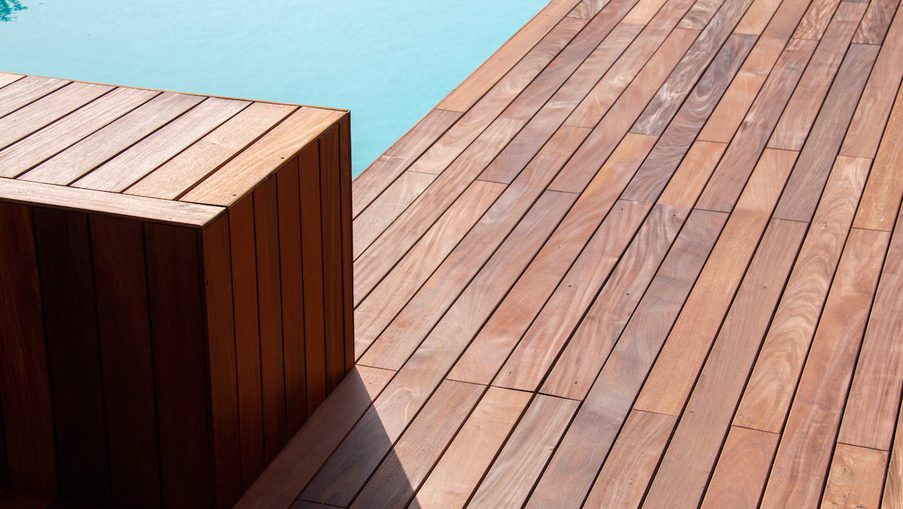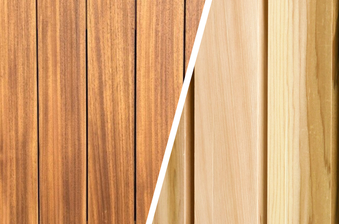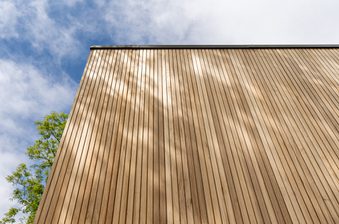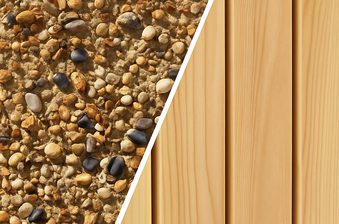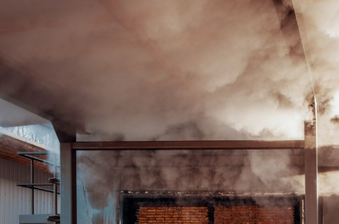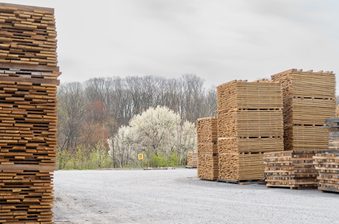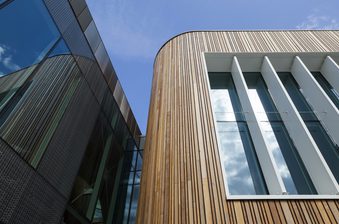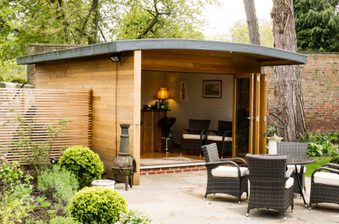Ipe, also known as Brazilian Walnut, is a central and south American hardwood with a deep, rich brown appearance and truly remarkable strength.
In fact, ipe is amongst the strongest woods in the world. It’s a prized timber for a range of demanding outdoor applications, particularly decking.
A species introduction
Ipe is a tropical hardwood tree native to central and south America. You may also see it spelled with an E with a circumflex — ipê. A Portuguese word, it is pronounced ee-pay.
You might prefer its other common names, Brazilian walnut, ironwood and lapacho. Ipe actually refers to a number of species of tree — it is the common name for a number of species that fall under the Handroanthus genus.
The species has a widespread growth range across tropical Americas — central and south — with significant populations in Argentina, Bolivia, Brazil, Colombia, Guyana, Paraguay, Peru and Venezuela. The trees can reach up to 45 metres in height and have a fairly narrow trunk.
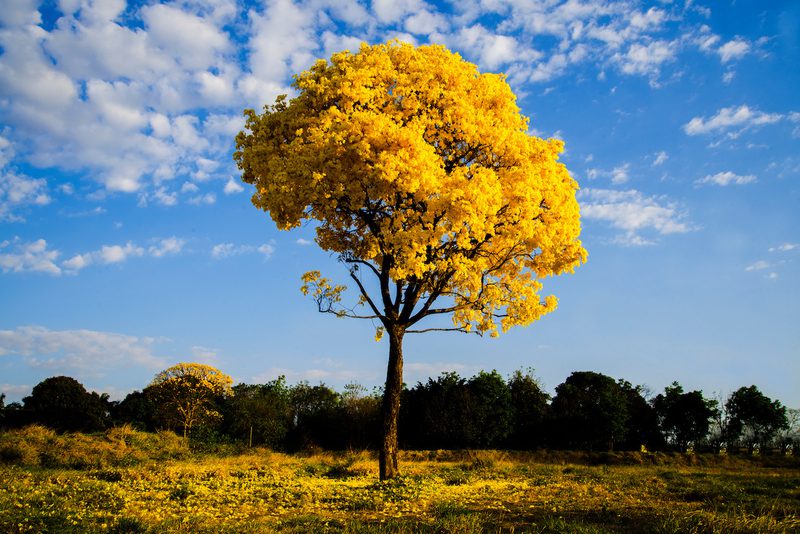
Properties
Colour
Ipe has a rich, deep mid-to-dark brown colour, with very occasional hints of green and yellow. The wood ages impeccably, but if untreated, it will slowly fade to a silvery colour. This can be stopped by applying a UV treatment.
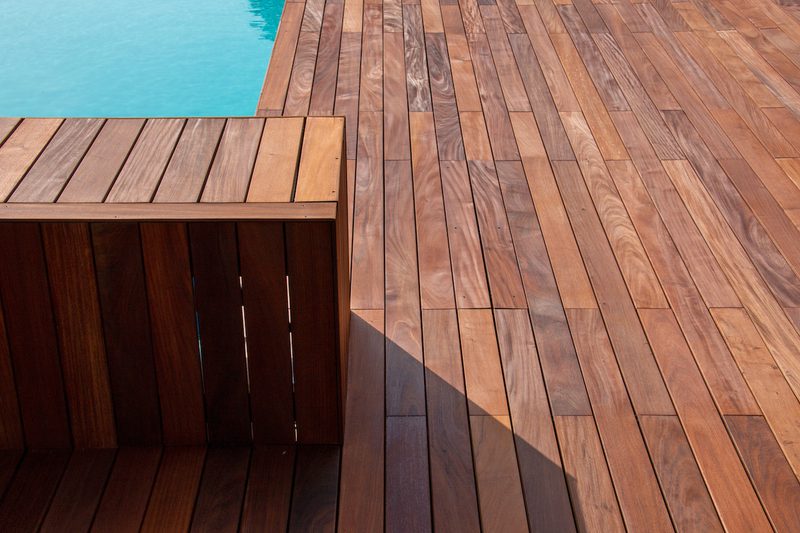
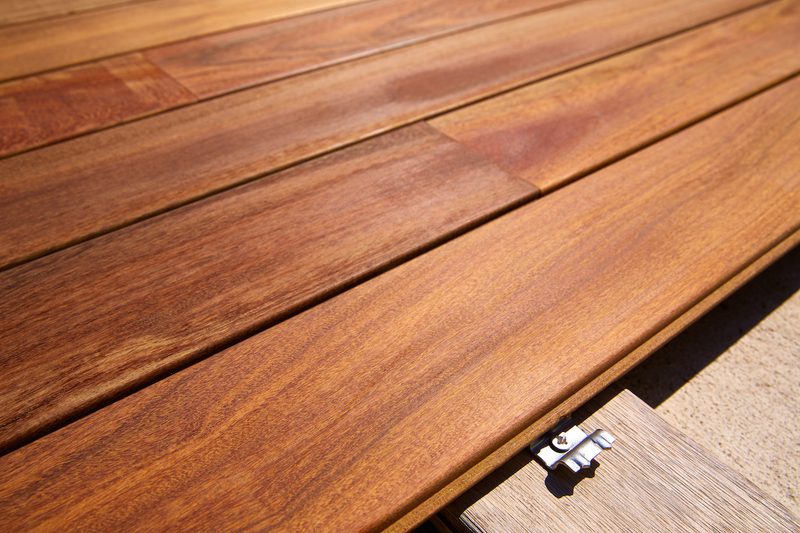
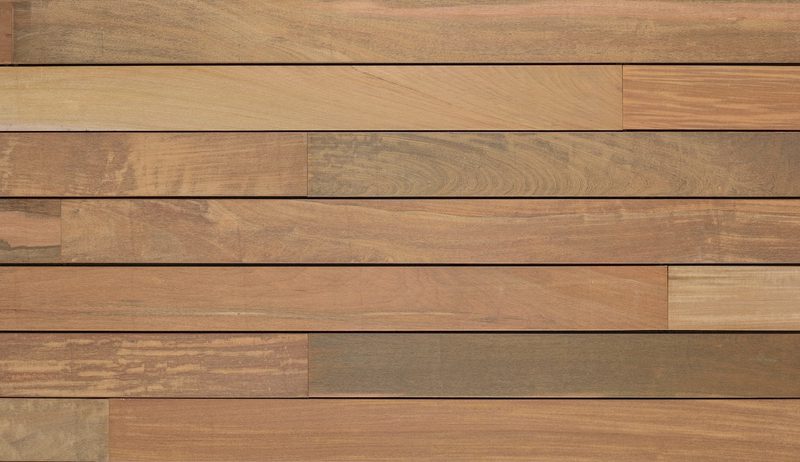
Grain
Ipe’s grain pattern can vary to quite an extent, sometimes straight, irregular or interlocked grain. It has a fine texture.
Density
Ipe is extremely dense, with an average weight of over 1,000kg/m³. That’s heavy — especially when you consider European Oak, itself a very dense and heavy timber, only clocks in at 675kg/m³.
The wood has a Janka hardness score of 16,390 N, placing it amongst the strongest woods in the world. Janka score refers to the force required to implant a small steel ball halfway into a sample of wood.
For context, English oak has a score of 5,000 N, and the strongest wood in the world, Australian Buloke, has a score of 22,500 N. Many woods that are considered strong, like mahogany, score only 3,600 N.
High levels of density is a characteristic of many tropical hardwoods, such as sapele (6,060 N), wenge (7,300 N) and zebrano (7,010 N).
So, Ipe really is remarkably dense, with very high resistance to knocks, bending and indentation. Even if it comes in contact with a heavy weight, it does not mark. Testament to ipe’s durability is that it was used for the Coney Island boardwalk and the Panama Canal locks.
Durability
Like many tropical timbers, ipe has exceptional natural resistance to moisture, rot and insects. The timber has a BS EN 350-2:1994 rating as Class 1 — the highest possible — meaning it is ‘very durable’. It’s suitable for almost anything that can be thrown at it.
Workability
Ipe is generally considered to be a very challenging wood to work with, simply by virtue of its extreme density. It has a tendency to blunt cutting edges. Even with pre-drilling, ipe can dull tools very quickly. Planing can produce good results, but there is a risk of tearout in areas with an interlocked grain.
Uses
Ipe is quite an expensive hardwood, typically sourced by high-end architects for luxury commercial and residential exterior decking projects, like villa swimming pool areas, hotels and balconies. It’s phenomenally hard-wearing, naturally durable with undeniable tropical beauty.
Less common, but still popular exterior uses include fencing, outdoor furniture and cladding. It can also be used for boatbuilding, interior flooring, joinery and cabinetry, as a veneer and for specialty turned objects and tool handles.
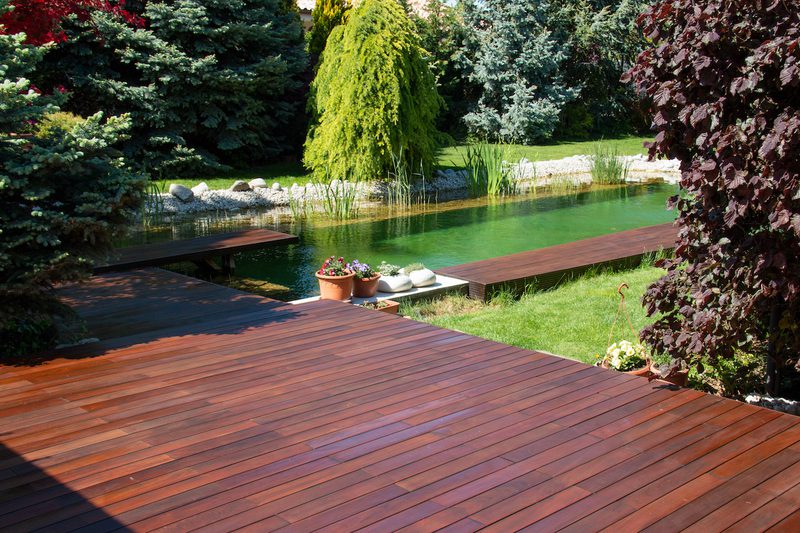
Sustainability
Ipe is not listed in the CITES Appendices, meaning there are no restrictions on trade resulting from threats to the species’ long-term survival. However, some species of ipe, such as Handroanthus chrysanthus, are listed as ‘Vulnerable’ in the IUCN Red List in 2020.
That said, populations have declined over the past few generations as a result of overexploitation. Given the high prices commanded by ipe, there is a black market for the wood, with more being harvested than is legal.
This makes it crucial to buy your ipe from a merchant with a clear environmental commitment – at Duffield, we frequently visit our central African suppliers to perform sustainability and traceability checks.
If sustainability is a big consideration, you might want to consider wood with certifications like FSC. This guarantees the wood comes from a responsibly-managed source and can be tracked from its journey from the forest.
Duffield Timber: your home for sustainably-sourced tropical timbers
We’re a leading UK importer and stockist of some of the world’s most beautiful woods. If you’re interested in pricing and availability for ipe for your next project, simply message our team to discuss your requirements. We’d be delighted to hear from you.
We offer decking, cladding and fencing, all sure to add a luxury, designer touch to your outdoor space. If you’re nearby, then be sure to call in and have a look around our recently-refurbished hobby hall, a veritable treasure trove of sought-after, high-performance tropical timbers.
